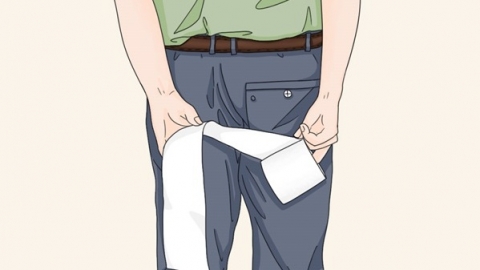What to do if there is no bowel movement after surgery for rectal cancer
After surgery for rectal cancer, failure to pass stool may be caused by insufficient dietary fiber, reduced physical activity, intestinal dysfunction, constipation, or bowel adhesions. These issues can be improved through dietary adjustments, increased activity, and medication. If inability to pass stool persists along with abdominal distension and pain, prompt medical attention is necessary.
1. Insufficient dietary fiber after surgery: Consuming overly refined foods post-surgery leads to low fiber intake, slowing intestinal motility and causing dry, hard stools that are difficult to expel. It is recommended to increase intake of high-fiber foods such as celery and apples, while ensuring adequate daily water consumption to promote intestinal movement.
2. Reduced physical activity after surgery: Prolonged bed rest and inadequate physical movement after surgery reduce the driving force for intestinal peristalsis, resulting in difficulty defecating. Under a doctor's approval, gradually increase bedside activities and slow walking, progressively enhancing overall activity levels.

3. Intestinal dysfunction: Imbalance of gut microbiota or abnormal neural regulation after surgery can disrupt intestinal function, leading to poor bowel movements accompanied by bloating and abdominal discomfort. Under medical guidance, medications such as *Bacillus subtilis* and *Enterococcus faecalis* viable capsules, lactulose oral solution, or domperidone tablets may be used to relieve symptoms.
4. Constipation: Slow intestinal motility after surgery prolongs stool retention in the intestines, allowing excessive water absorption, which results in constipation and difficulty passing dry, hardened stools. As directed by a physician, use medications such as glycerin suppositories (enemas), polyethylene glycol 4000 powder, or麻仁润肠丸 (Ma Ren Run Chang Wan) to alleviate symptoms.
5. Bowel adhesions: Postoperative adhesion of intestinal tissues may impair normal intestinal motility and passage of contents, leading to failure to pass stool and accompanied by intermittent abdominal pain. Under medical supervision, medications such as racemic hyoscine tablets, belladonna tablets, or mosapride citrate tablets may be used to improve symptoms.
Daily care should include a balanced diet with appropriate amounts of dietary fiber, moderate physical activity according to recovery progress, establishing regular bowel habits, and closely monitoring bowel movements and abdominal conditions.





